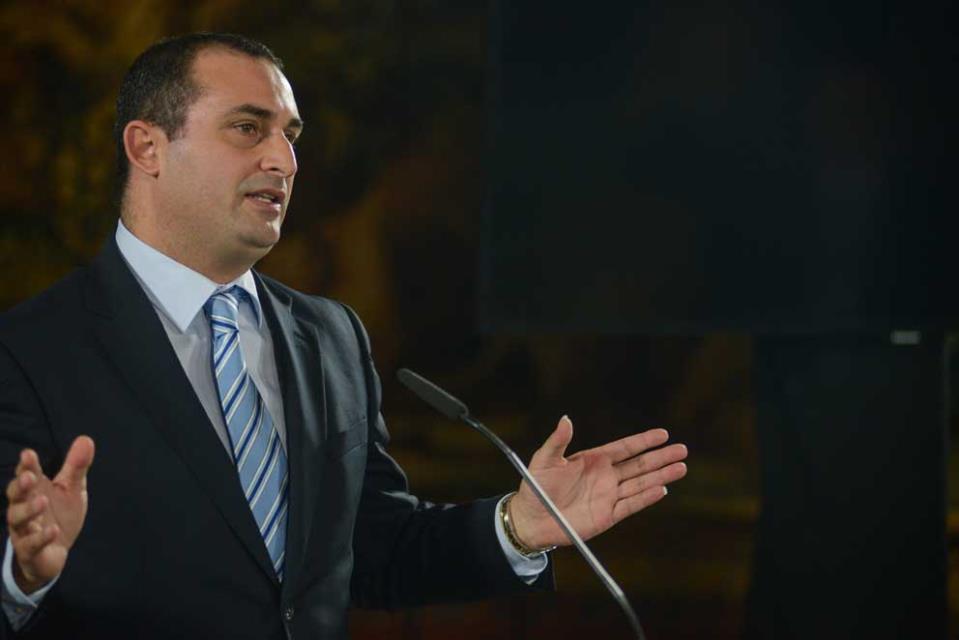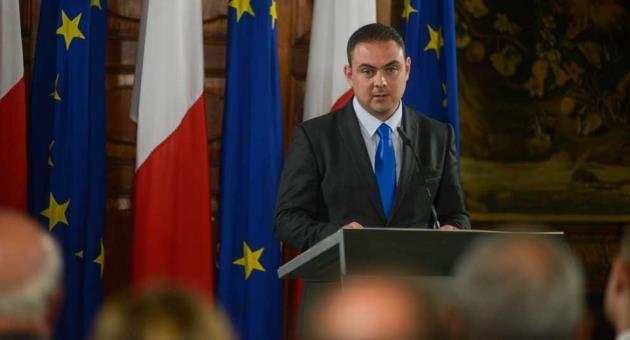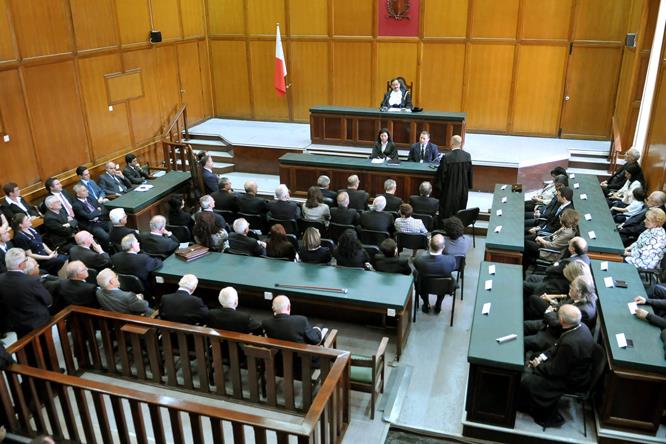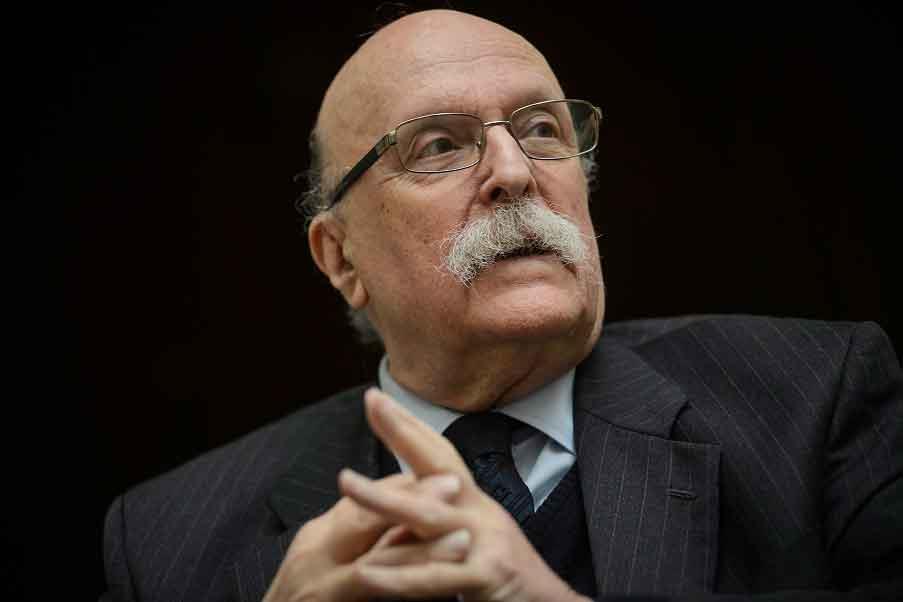The Drug Dependence Act – which is the law that ushers in drug reforms – expressly states that the simple possession of drugs will still be considered to be a criminal offence, even though the act is supposed to be decriminalized, according to Law Commissioner Franco Debono.
Justice Minister Owen Bonnici, on the other hand, has insisted that the only reason why simple possession will still remain an “arrestable offense” is for the police to be able to fight drug trafficking, and says that the possession of a minimal amount of drugs for personal consumption will effectively be decriminalized.
Changes brought about by the Drug Dependence Bill include the appointment of a Justice Commissioner to hear cases of possession of small amounts of drugs. First-time offenders will be handed fines of between €75 and €125, and between €50 and €100 in the case of cannabis possession. Repeat offenders will appear before a Drug Offenders Rehabilitation Board, headed by retired Chief Justice Giovanni Bonello, which will set conditions for rehabilitation. Breaching the conditions would be tantamount to a criminal offence. The Magistrates Court - in cases not involving the use of weapons or violence - would be able t acts as a Drugs Court and refer the accused for treatment to the rehabilitation board.

Simple possession will remain a criminal offence - Debono
Dr Debono, whose job is to advise the government when drafting new laws, noted on TVM’s breakfast show last week that a recently introduced paragraph in the Drug Dependence Act retains the criminal element in simple possession. This, he argued, means that simple possession will not be decriminalised at all.
The paragraph, which is meant to be added into the Justice Commissioners Act says: “Notwithstanding the other provisions of this act, an offence against the Dangerous Drugs Ordnance or against the Medical and Kindred Professions Ordnance (Malta’s two existing drug laws) which is prosecutable under this Act shall not cease to be a criminal offence.”
When contacted by The Malta Independent yesterday, Justice Minister Owen Bonnici confirmed that simple possession will remain an “arrestable offence” but insisted that this was only done to allow police to question offenders on where the drugs were bought. “If we have to look into the small details of the law, then yes, it is still a criminal offence but that does not mean that we have not decriminalized simple possession.” Dr Bonnici said those who get caught with a small amount of drugs, like one joint, will still appear before the Commissioner for Justice and fined.

Only for purpose of fighting drug trafficking - Minister
Dr Bonnici said simple possession was only retained as a criminal offence for technical legal reasons. “This was only done so that we can defeat drug trafficking. In fact, I urge anyone who is caught with small amounts of drugs to cooperate fully with the police.”
The Justice Minister said Magistrate’s Courts will only retain jurisdiction in cases where the accused is charged with other crimes over and above simple possession. “Imagine a case where a person is charged with, say, defilement of a minor and possession of a joint. That person will appear before the courts, which try them on both charges. However, the punishment given on the simple possession charge cannot exceed the punishments handed down by the Justice Commissioner.” He explained that this is being done in order to save offenders the trouble of appearing before two tribunals.
Dr Bonnici said that, although Malta’s system is unique, the concept could be likened to that of the Netherlands, where drug possession in small amounts is illegal but non-prosecutable.

‘Punishments have actually increased’
Speaking to The Malta Independent, Franco Debono noted that the retention of arrest powers by the police for the purpose of fighting drug trafficking had been one of his recommendations but said he could not understand why a whole reform was drafted to decriminalise drugs when, in fact, they are not being decriminalised. “I support this reform and I truly hope that it will be a success but I am flagging down an ambiguous situation that had arisen from the new law. It is very clear that the criminal element of simple possession has been retained.”
The Law Commissioner said that what was a crime is still a crime – the only difference is that cases will be heard by a Justice Commissioner instead of a Magistrate and punishments have changed. He said one option could have been to equip the courts (with professionals) to better deal with rehabilitation.
He also argued that the minimum punishment has actually been increased. “Before this reform, people charged with simple possession were usually handed a conditional discharge, which does not go on one’s police conduct. Fines were very rare. The minimum punishments that the courts could hand down were a reprimand and admonition, which were also not included in police conduct. This means that the minimum punishment will actually become harsher with a fine.”

Consolidation of existing drug laws
Dr Debono said the ambiguity also arises from the fact that the new law keeps referring to the two existing laws on drugs – the Dangerous Drugs Act and the Medical and Kindred Professions Act. “These two laws – Cap. 31 and Cap.101 – are still the starting point of the whole thing.”
The Law Commissioner said he is currently working on the consolidation of the two existing laws - something that he had suggested back when he was a PN MP. “My opinion was and still is that these laws should be incorporated together before the new law is passed.”Another lawyer, Dr Michael Schriha, yesterday also echoed Dr Debono’s thoughts and said that certain aspects of the new law need to be clarified and that the existing drug laws should be incorporated into the new one – saving the courts the trouble of having to refer to three different laws when trying a case.
Fined €50 by a jury?
Dr Debono also noted that the jurisdiction issue – where more than one tribunal might have jurisdiction over a case – could lead to unnecessary complications. Last week he argued that the more complicated system could actually lead to lengthier delays, because cases would have to be cross-referenced between the Justice Commissioner and the courts.
He also gave another scenario: “Imagine a person facing trial by jury for trafficking and simple possession and only being found guilty of the latter charge. Will we have a situation where a jury fines someone €50 for possession of a joint in that case, in order to be in line with the new punishments?”
Dr Debono said he had made all these argument some years ago as a PN MP. Many of his proposals have been taken on board, including the Attorney General’s discretion in drug cases, the cultivation of cannabis plants for personal use and the drugs court. He says, however, that his role now is to advise while the political decisions are taken by the government.

It is the substance that counts, not the word – Judge Giovanni Bonello
The word “decriminalize” means a lot and means nothing at the same time. It is not the label which counts but the content, said Judge Giovanni Bonello.
Speaking to this newspaper, he said: “An enactment may claim to formally ‘decriminalize’ a former misdemeanour, but if the characteristics of prosecution, trial, punishment and consequences remain essentially ‘criminal’ then, notwithstanding the new label, the act remains ‘criminal’.
Conversely, even if an act still formally classified by law as criminal, is treated in a non-criminal way in so far as prosecution, trial and penalties are concerned, then that act will be ‘decriminalized’ notwithstanding its formal classification as ‘criminal’ . Again, it is the substance, not the label that counts.”
Judge Bonello continued: “The proviso you quoted is to be read in the light of the above. Formally, simple possession now falls under both headings: criminal and non-criminal. When the person charged is channelled through the new procedure, he or she will be facing decriminalized proceedings. If the person charged is made to face charges under the two old laws, then he will be facing a special procedure that is criminal in trial, but restorative in penalty.”
He concluded: “That is why I do not favour the use of the term ‘decriminalize’. It is a very imprecise term. It is the substance that counts, not the word.”